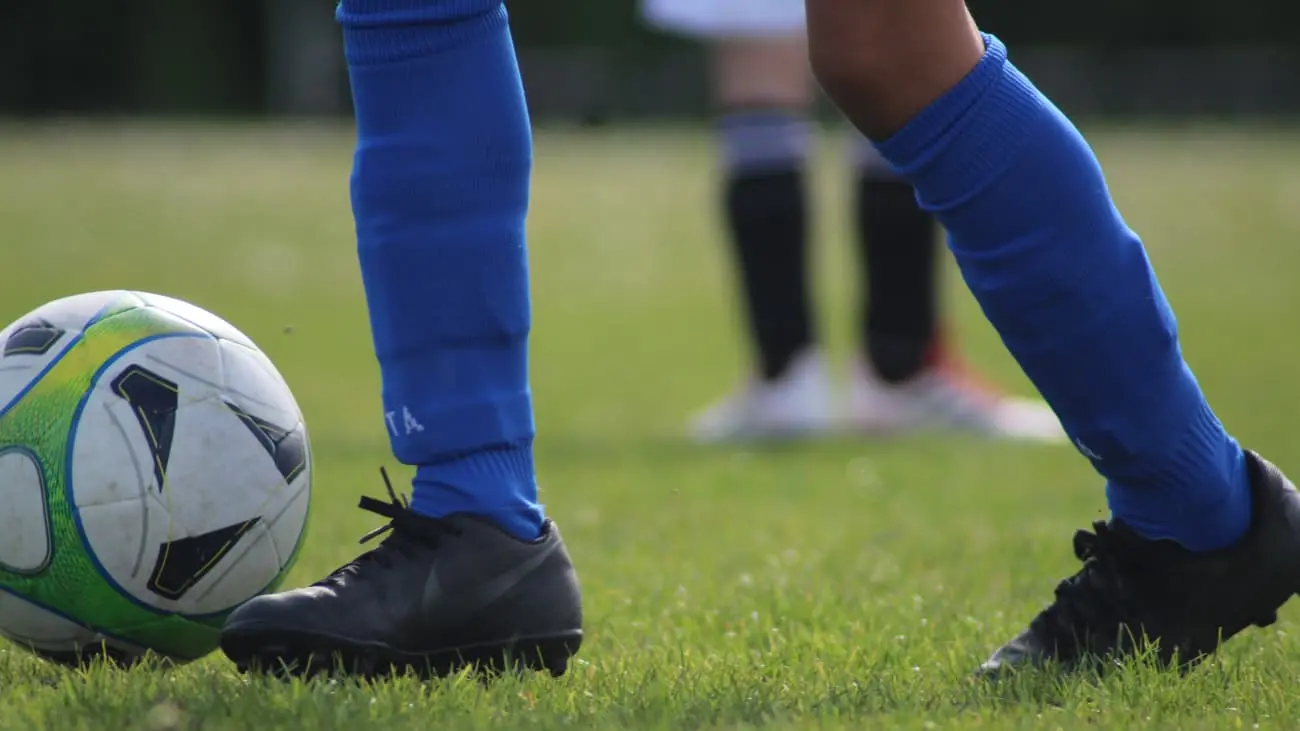THE FUTURE OF YOUTH FOOTBALL
Thiago Calderaro
Goal of the Reform
The reform of the German Football Association aims to make football more "child-friendly" and development-promoting. The main objectives are to promote the fun of the game, the individual development of players and to adapt the competition to modern pedagogical and sports science findings.
Content of the reform
1. Development Compensation
The DFB has increased the training compensation for club transfers in order to honour the work of young players in amateur clubs. This means that clubs that lose players to higher-class clubs with youth development centres will be better compensated financially, with the players' former clubs also being taken into account. However, this only applies if the player retains their status as an amateur player. It should therefore be closely monitored what the contracts of underage players look like when professional clubs avoid the training compensation by changing their status to a contract player. The calculation of the training allowance depends on the league in which the new club's first men's team plays. If a Bundesliga club signs a B or A youth player with amateur status from the 2024/2025 season, it must pay a basic amount of €5,000, which is double the previous amount. In addition, €400 per season played since the age of six will be charged, both for the releasing club and for all previous clubs. For second division clubs, this fee is €2250 plus €200 per season, for third division clubs €1250 plus €100 per season. For C and D youth players of an older age group, the compensation for Bundesliga clubs increases to €3000 (previously €1500) and €400 per season (previously €200).¹
2. New Playing Forms
The 44th DFB Federal Congress has confirmed the introduction of new forms of play in children's football from the 2024/2025 season. With this reform, the DFB wants to ensure that all players, regardless of their role in the team, have the opportunity to develop individually. In the G- and F-youth (U7-U9), a game system called "Funino" will be introduced to encourage more contact with the ball and active participation in the game. In the G-Youth, the game is played in two-on-two or three-on-three on four mini goals, while in the F-Youth, three-on-three, four-on-four or five-on-five is recommended. In the E-Youth, the transition is made to five-a-side to a maximum of seven-a-side with small-sided goals and goalkeepers. Instead of championship rounds, afternoons and festivals with several teams and pitches are held in G and F youth. The elimination of tables and championships in the younger age groups is intended to reduce the pressure on young players. The new formats are intended to promote independence and independent problem-solving among children and minimise coaching by coaches and the influence of parents. The DFB refers to its survey (Amateur Football Barometer), which confirms the importance of fun, fair play and age-appropriate football.²
3. Scientifically Proven Approaches
The DFB's reform is based on studies that show that modified forms of play lead to more ball action and more holistic player development.³ ⁴ Positive experiences were gathered during the two-year pilot phase for the new forms of play in children's football. Thanks to the rotation principle, all children receive playing time. The games are organised in such a way that the teams are promoted or relegated after each round, which leads to balanced matches. Headers are also reduced thanks to smaller pitches and modified rules, which is welcomed by the medical side, according to the DFB.⁵
4. Reduction of the Pressure to Succeed
From the 2024/2025 season, the U19 and U17 DFB youth leagues will replace the previous A and B national youth leagues. The league is divided into two phases: a regional preliminary round and a main round split into League A and B, with the German champion being determined in League A. All clubs with a performance centre qualify automatically and the league is open to other teams. The reform aims to encourage young players to be more creative, enjoy the game and perform better, with the focus on success and winning rather than avoiding failure. Each team is allowed to make up to seven substitutions per game to give everyone enough playing time. The season structure involves 14 match days in regional preliminary round groups and a subsequent division into League A and B for the main round. The best teams from League A qualify for the round of 16 of the German Championship. The DFB Cup for the U19s will be increased to 64 teams and will follow the cup system in knockout mode. The new competitions are intended to optimise the promotion of young talent, while at the same time facilitating access to the Bundesliga for amateur clubs.⁶
Critical Voices
1. Ralf Rangnick
At the International Coaching Congress (ITK) in July 2023, Ralf Rangnick, Austria's national coach, expressed serious concerns about current developments in youth football, particularly with regard to the abolition of results and tables. His words: "If someone at the Austrian Football Association (ÖFB) were to come up with the idea of telling me that there are no more tables for six to twelve-year-olds, no results at the end and no list of who scored the goals, then they would have a problem with me". He emphasised that such an approach was the wrong direction and that the winning mentality that once characterised Germany should not be neglected. Rangnick also expressed concern that the lack of competitive elements in youth football could be detrimental to the development of players' cognitive skills. He emphasised that the winning mentality and the pursuit of winning are essential aspects of football and the development of young players. He reflected nostalgically on the times when football was mainly played on streets and football pitches. He noted with concern that these pitches are now empty and emphasised the need to integrate elements of street football into club training and school sports. Although the Austrian Football Association (ÖFB) had already adopted similar reforms a year earlier, Rangnick made it clear that he would oppose such a policy if it was implemented in the ÖFB.⁷
2. Steffen Baumgart
In August 2023, Steffen Baumgart, former coach of 1. FC Köln, was very critical of the planned reform of children's football in a lively conversation with WDR presenter Sven Pistor in the podcast "Einfach Fußball". In front of a live audience, Baumgart spoke openly and directly about numerous topics, including his concerns regarding the abolition of results and tables for the G, F and E juniors. Baumgart, known for his clear words, made his opinion clear (listen from minute 26:10 of the podcast). His criticism was directed against the trend towards a "soft and shallow" approach in youth football. Baumgart argued that it is not harmful for children to lose in sport. He emphasised the importance of children learning to deal with defeat. For him, it is essential that the enjoyment of sport is not made exclusively dependent on winning and scoring a high number of goals.⁸
3. Hans-Joachim Watzke
Hans-Joachim Watzke, DFB Vice President and Managing Director of Borussia Dortmund, sharply criticised the youth academy reforms in September 2023. Watzke described the reforms as "incomprehensible and incomprehensible to me" and announced that he would push through a "reform of the reform". His criticism was directed at the new forms of the game. He also believes that young players could lose their sense of winning and losing as a result of these changes. He emphasised that the experience of defeat is necessary in order to find the "great strength" to win. He criticised German society, saying: "If we are afraid that an eight-year-old will be completely thrown off balance because he loses 5:0 with his team, then that also says a lot about German society." Watzke also attacked the discussion about the abolition of goals in children's football and was ironic about it. He warned against an overemphasis on stress reduction and working from home in society and transferred this criticism to youth football by claiming that the DFB and society want to avoid pressure to perform, which he considered to be the wrong approach.⁹
Supporters
1. Hannes Wolf
In an interview with the podcast ‘kicker meets DAZN’ in November 2023, Hannes Wolf, Director of Youth, Training and Development at the DFB, reiterated the need for youth football reform in Germany. Wolf emphasised the need for a new approach in youth football in order to keep pace with the international competition. His quote: ‘We have to do better and rethink because the others have become better. Once that is accepted, the rest won't be quite so difficult.’ Wolf also commented on the criticism of the reform, particularly in the children's sector, and took a positive view of the debate that has arisen. He explained: ‘What we have now is a debate. The topic wasn't discussed incorrectly before, it wasn't discussed at all for decades.’ He emphasised how important the willingness to adapt is once it is recognised that these changes will benefit children and their development. Wolf was responding to criticism from Hans-Joachim Watzke. He emphasised the importance of the reform for future-oriented development in German youth football.¹⁰
2. Munich Football School
Another advocate of the reform is the globally represented Munich Football School (MFS), which has stood for the motto ‘development before results’ for over 20 years. In their podcast ‘#einfachbesserfussballspielen’, founders Michael Schuppke and David Niedermeier have warned of the potentially negative impact of ‘polemical statements’ by influential figures such as Rangnick and Watzke on public opinion, particularly with regard to the supposed importance of results and tables. They reiterate that their abolition will in no way lead to the winning mentality of the players suffering as a result, as there will continue to be numerous victories and defeats at the Funino match festivals. They are expressly in favour of the introduction of the new forms of play, as these have been proven to lead to more contact with the ball and reduce waiting times to a minimum thanks to the rotation principle, which promotes technical training. They also appeal to Rangnick, Watzke and other professional football experts to keep a low profile in the debate and ask them to refer to experts in children's and youth football, such as Hannes Wolf.¹¹
International Perspectives
1. England
In England, the Football Association (FA) introduced measures years ago as part of its youth football strategy to reduce the pressure on young players to achieve results and promote individual development. This is reflected in the Elite Player Performance Plan (EPPP), which aims to produce more and better home-grown players. Through the EPPP, the FA focuses on systematically evaluating and categorising academies to ensure a high level of training. There are detailed specifications for training, player support and facilities. The programme places great emphasis on the technical and tactical development of players, complemented by psychological and educational support. It also promotes communication and cooperation between the academies and clubs in order to share best practices and establish a standardised training system across the country.¹² Jamal Musiala, international and professional at FC Bayern Munich, considers his almost nine years of training in England to be crucial to his professional career. In an interview with the BBC, he emphasised the differences in youth work between Germany and England. Musiala said: "In Germany, there is already a league system for under-ten-year-olds, whereas this is not common in England up to U18 level. There is much less pressure and more time to develop, you can play much more freely. "¹³
2. Spain
Youth development in Spanish football is characterised by a holistic approach. Academy directors from LaLiga clubs such as CA Osasuna, Levante UD and RCD Mallorca emphasise the importance of the holistic development of young players, which includes both sporting and non-sporting aspects. A less results-orientated approach is also supported by the Royal Spanish Football Federation (RFEF). By introducing a new sports psychology department, the RFEF aims to offer support and help to children who may suffer from the pressure.¹⁴ According to a report by the CIES Football Observatory, players trained in LaLiga Santander played the highest proportion of minutes in the top five leagues in Europe last season. The youth academies of these clubs emphasise the early recruitment of talent and offer a broad education that encompasses both sporting skills and personal development.¹⁵
3. France
Even at the top level of French youth football, less emphasis is placed on the pressure to achieve results. In France, a centralised approach is taken. The Institut National du Football de Clairefontaine, often described as a breeding ground for French football talent, has been instrumental in the development of world-class players such as Kylian Mbappé since it opened in 1988. Here, work is carried out in a calm, structured environment with a focus on collective excellence while nurturing individual skills. The French Football Federation (FFF) has created a system that combines first-class facilities and coaching with science-based training protocols and comprehensive support services for young talent. This approach has been instrumental in strengthening France's global position in football. At the academy, the focus is on the early technical improvement of players and instilling values such as respect, hard work and humility. The aim is to develop not only outstanding footballers, but also strong personalities.¹⁶
Conclusion
The DFB reform represents a decisive step towards modernising youth football in Germany. By focussing on child-friendly and development-promoting approaches, such as the introduction of "Funino" and new structures in the top U17 and U19 divisions, it shifts the focus away from the pressure to achieve results and towards the individual development of players. This reform, which has been criticised in some quarters, reflects a necessary adaptation to modern sports science and pedagogical findings. It is based on international best practice, so the real question should be why this reform was not implemented much earlier. In my view, the reform is necessary to improve the quality and enjoyment of football for young talents in Germany, given Germany's widespread conservative thinking. The coming years will show how effectively the reforms are implemented and what impact they have on the development of German football. If they are successful, they could serve as a model for other countries and change the way we think about youth football and player development.
Sources
1. https://www.dfb.de/news/detail/jugendwechsel-mehr-geld-fuer-amateure-257653/
4. https://www.frontiersin.org/articles/10.3389/fpsyg.2021.667041/full
5. https://pubmed.ncbi.nlm.nih.gov/31947562/
6. https://www.dfb.de/news/detail/modus-und-regelungen-fuer-neue-dfb-nachwuchsligen-beschlossen-257604/
7. https://www.kicker.de/rangnick-unsere-siegermentalitaet-war-immer-gefuerchtet-960778/artikel
8. https://www.sportschau.de/fussball/kinderfussball-kritik-dfb-reform-100.html
9. https://www.sueddeutsche.de/sport/watzke-kinderfussball-reform-kritik-dfb-wolf-1.6206147
10. https://www.zeit.de/news/2023-11/03/wolf-verteidigt-dfb-nachwuchsreform-muessen-neu-denken
11. https://open.spotify.com/episode/5ndBoyzsMIF05GRbbpdSLY?si=5ucW56gYRhOB4__JQ633FQ
12. https://www.dw.com/en/how-england-transformed-its-young-footballers/a-43828515
14. https://www.marca.com/futbol/seleccion/2019/06/14/5d02c404e2704e2d3f8b45c9.html
16. https://www.washingtonpost.com/sports/2022/11/17/france-world-cup-clairefontaine/
Continue Reading
This might also interest you:







